Message from the Chancellor
Today, we live in a peaceful, prosperous, and blessed society. However, when we look around the world, we are also faced with complex issues such as environmental problems, conflicts, and disease.
We are ushering in a new era: an increasingly globalized “information age” in which society is undergoing rapid changes. These changes will require us to respect each other, embrace diversity, and work together to solve new problems.
In times when it is difficult to predict what will happen next, it is not enough to simply wait to be taught. We need the ability to find our own way to deepen the knowledge we are given and connect it to other forms of knowledge. We believe that independent study and reflection are essential tools in this process.
Our school’s basic philosophy is guided by the motto “seek and think for oneself,” along with two other goals: cultivating the qualities of an international citizen and fostering a strong moral compass, which are in keeping with the expression noblesse oblige, or “privilege entails responsibility.” We await you, the future students of the world, who will play active roles in the global community of tomorrow.
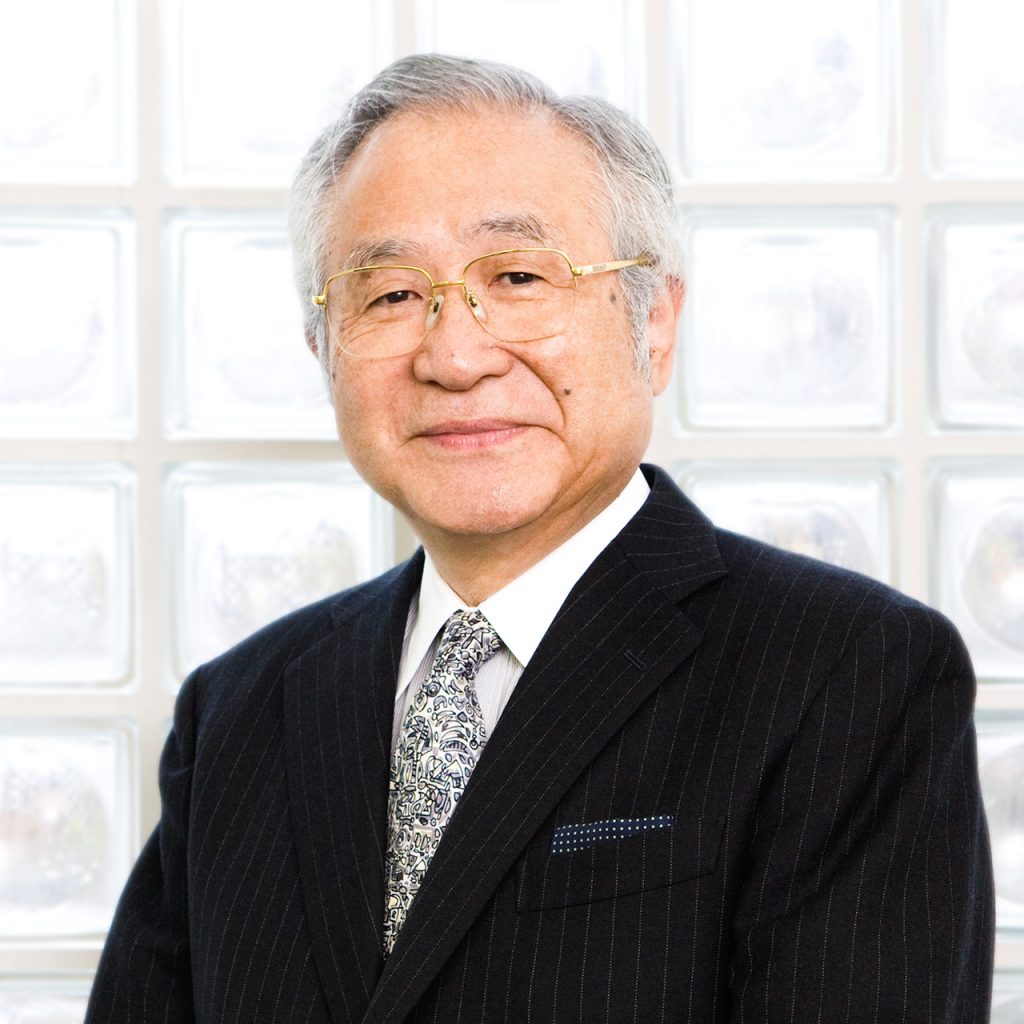
Shibuya Junior & Senior High School
Chancellor Tetsuo Tamura
Message from the Principal
There are two meanings to our school motto, “seek and think for yourself.” One is “research and think for yourself”: by being curious and taking the initiative, you will deepen your learning and awareness of the world around you. The other meaning is “research and think about yourself,” as thinking deeply about yourself helps you understand your role in society.
We grow by learning from each other. It is precisely because we are different that we work together and support each other. In the wide world, there are many people with different languages and cultures. Knowing that world can open the door to a new one.
The six years of junior high and high school are a time to form the foundation of your life. It is a time to grow while learning from the experiences of daily life. At the Shibuya campus of Shibuya Junior & Senior High School, or Shibu Shibu, there are many opportunities to expand your potential: classes, club activities, school events, and activities inside and outside of school. Let’s take advantage of these and spend six fulfilling years together.
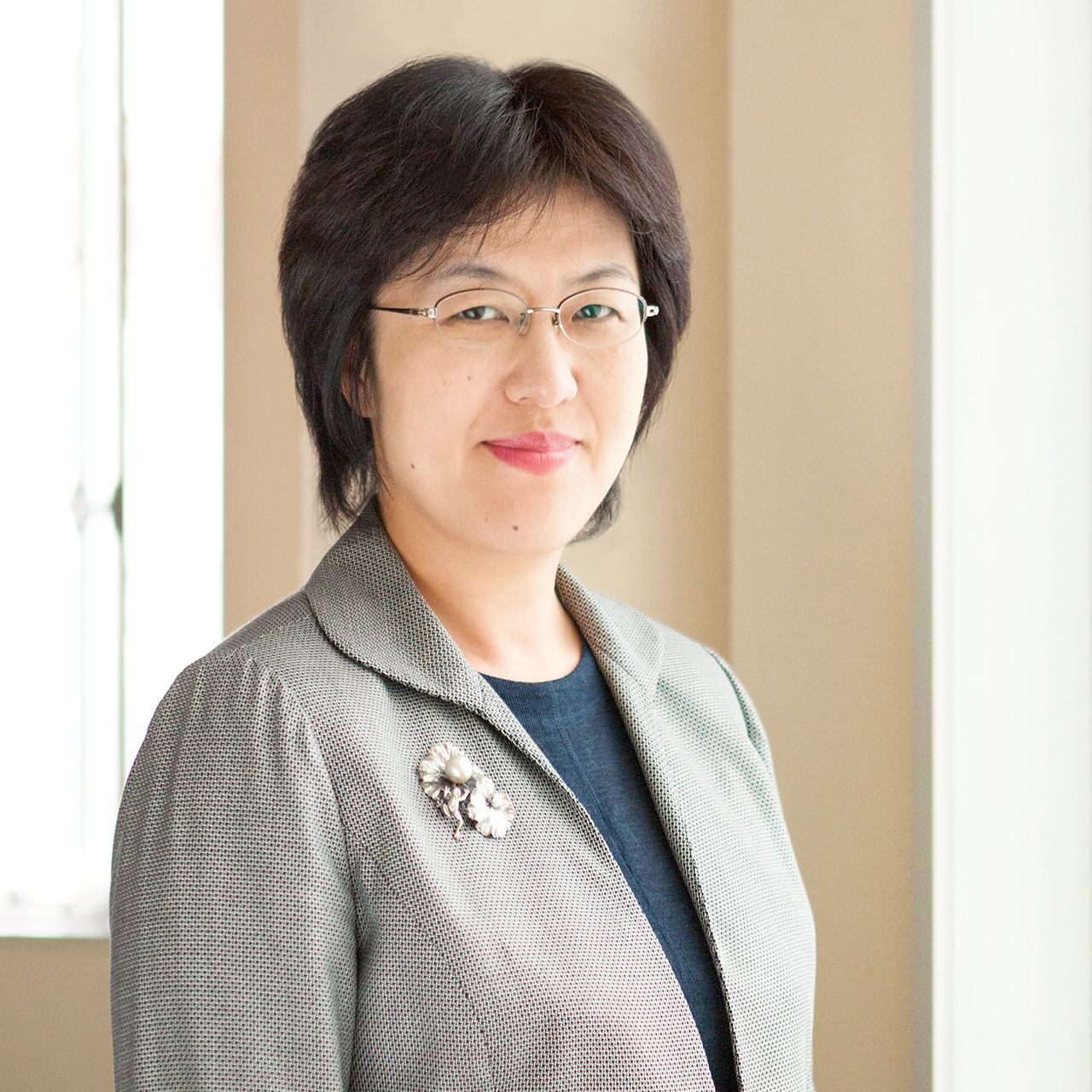
Shibuya Junior & Senior High School
Principal Itsuko Takagiwa
Our Philosophy
Seek and think for oneself
The school motto, translated as “Seek and think for oneself,” embodies the educational philosophy of Shibuya Kyoiku Gakuen, the school organization into which Shibuya Junior & Senior High School and its sister school, Makuhari Junior & Senior High School, are incorporated. We strive to foster a spirit of independence and intellectual curiosity in our students by providing a learning environment conducive to these aims. This ethos is reflected in the specific educational benchmarks established for each grade and the emphasis we place on goal-setting.
Multicultural awareness
One of the paramount aims of our school is to foster multicultural awareness in our students. One way in which we accomplish this is through homestays and educational exchange programs. In Junior 3 (9th grade), students take part in a homestay program in Australia, and during breaks between terms in the first and second years of senior high school (10th and 11th grade), we offer programs to the US, the UK, Singapore, Vietnam, or India. We also actively accept students who have lived and been educated outside Japan. These students comprise about 10% of the student body, and we encourage them to maintain their cross-cultural ties through a specially tailored Honors English curriculum, not only ensuring a diverse range of student perspectives, but also creating opportunities for other students to benefit from exposure to different viewpoints. Additionally, foreign exchange students from different parts of the world attend our school throughout the year, and about 5% of our students take part in a year-abroad program every year. Through such opportunities, we hope to promote our students’ appreciation and understanding of cultures outside of Japan.
Good moral character
Good moral character is a fundamental characteristic that we aim to nurture through various aspects of school life. Students are required to attend the bi-monthly lecture series given by the chancellor. These lectures are designed to provide age-appropriate guidance on topics such as self-discipline, goal-setting, and concern for others in order to encourage students to think more deeply about the meaning of life and society. In the second year of senior high (11th grade), students plan and carry out their own service learning. In recent years, they have engaged in projects ranging from stocking girls’ bathrooms with free sanitary pads, to researching how to prevent sleep apnea syndrome in long-distance truck drivers. Through these experiences, we hope to instill in students a clear sense of social responsibility so that they will be able to help create and contribute to the ever-globalizing world.
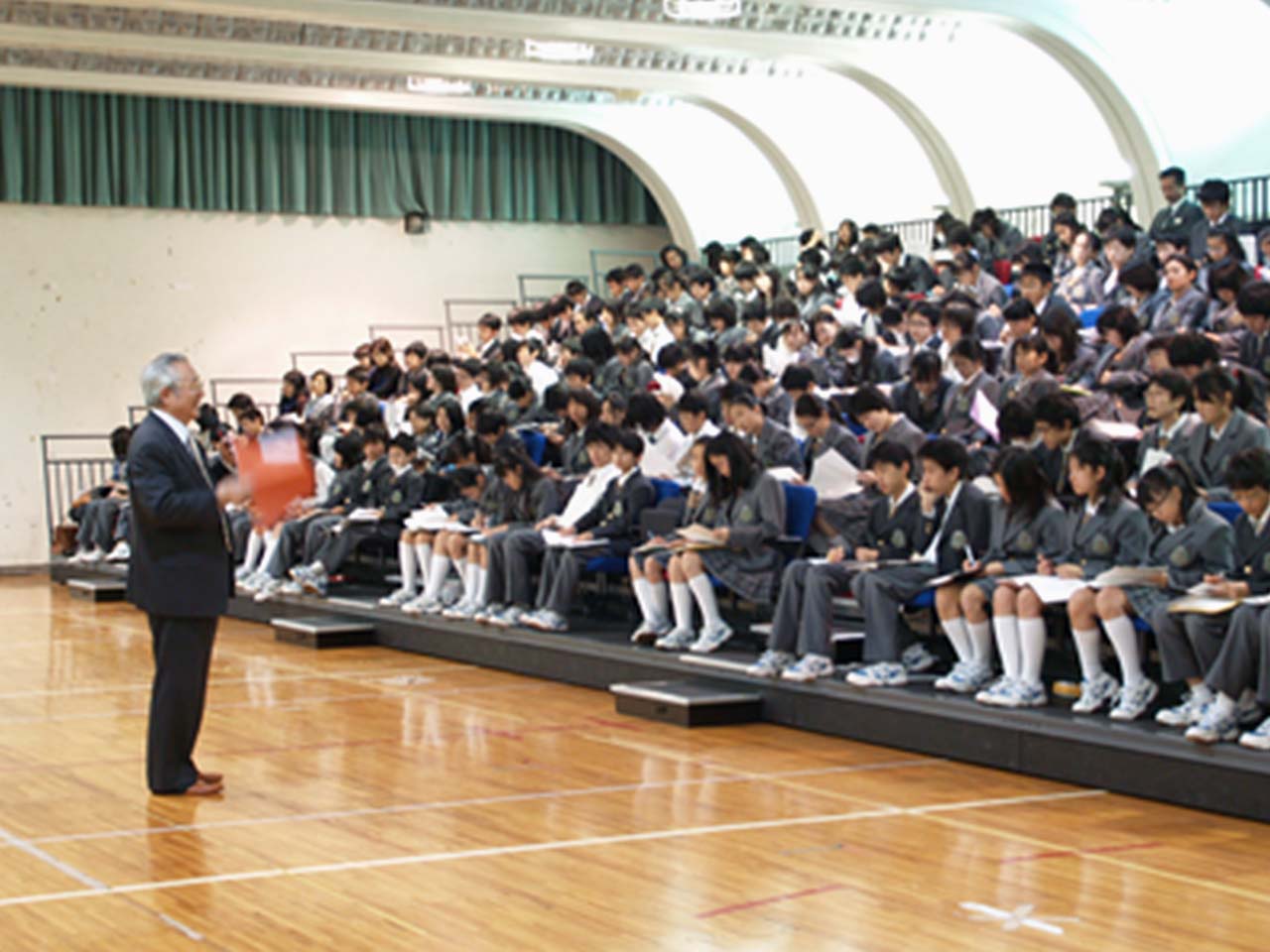
Curriculum
Our curriculum focuses on active learning and fosters critical thinking and effective communication skills. All academic courses we offer are accelerated and designed to prepare students to enter top-tier universities in Japan and overseas. Students choose either the humanities track or the science track for 11th and 12th grade.
We offer three unique English courses. The first is an English immersion course for returnee students, who have spent a significant amount of time in an English-speaking country. These students are taught a comprehensive language arts and world history program in English (Honors English). Students must maintain a high level of competency in English in order to remain in the program. Each year they are exposed to a wide variety of texts, ranging from classics such as Hamlet and The Odyssey to more contemporary works such as Persepolis and Klara and the Sun.
The second course is a high-level EFL course (Advanced English) for students who mostly have not spent time abroad but have excelled in English over the first two years of school here. The aim of this course is to develop students’ academic reading, writing, listening, and speaking skills in English through the teaching of both high-level graded readers and native-level texts.
The regular English courses are designed for students to not only learn English, but also to learn in English, and include a variety of activities such as project-based learning and essay writing instruction by English-speaking teachers. In collaboration with the social studies department, students carry out group projects on global topics, such as nuclear weapons, the Islamic world, and poverty.
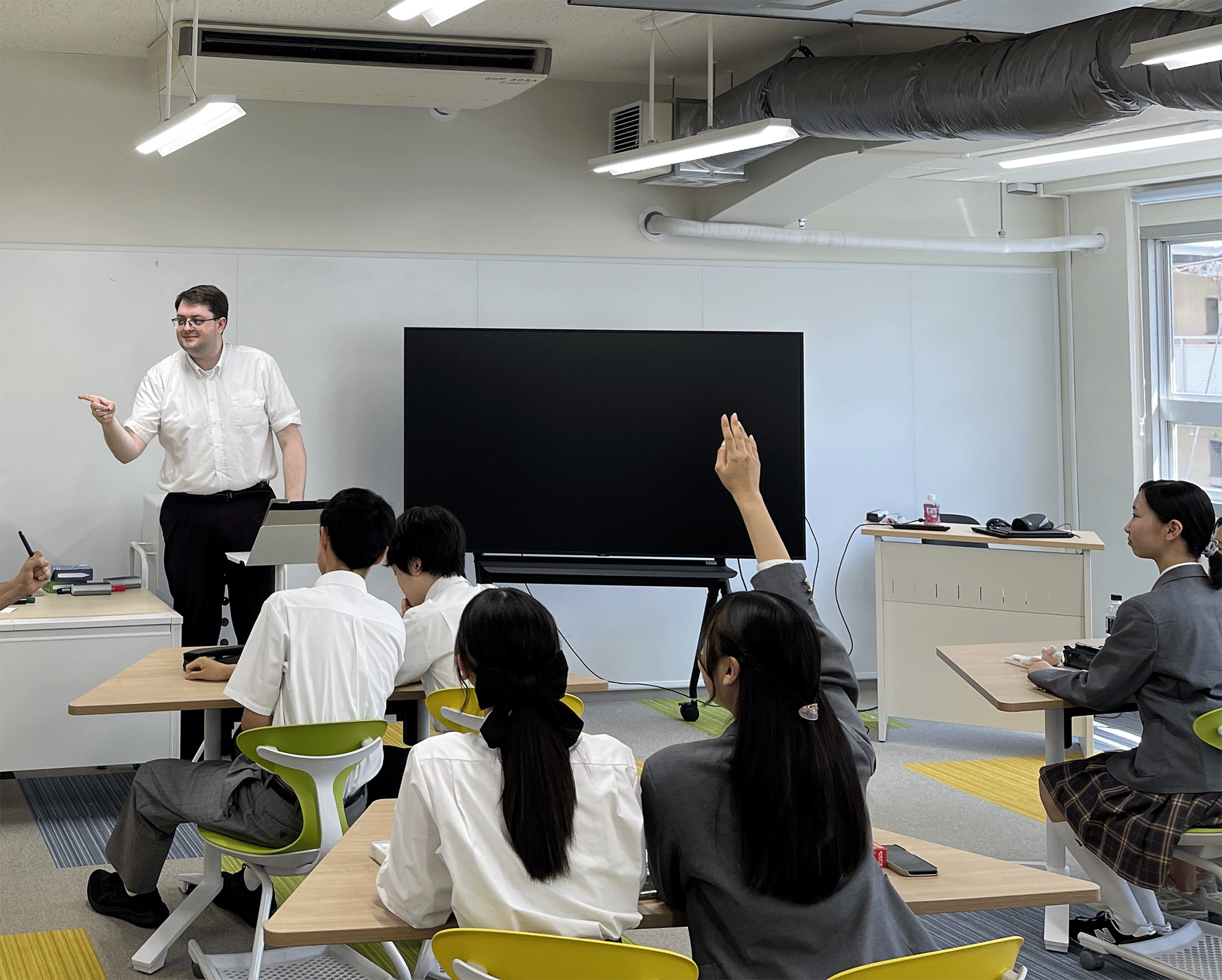
The Japanese language arts courses are designed to foster development in three areas: thinking logically and communicating effectively, understanding Japanese culture, and cultivating compassion and imagination. From the first year of junior high school, classes are divided into modern literature, classics, and expression. In the expression class, which is a special feature of our school, students improve their ability to gather and transmit information through a variety of language activities such as composition, speeches, presentations, and debates.
Our mathematics courses are highly accelerated. Throughout the six years, students practice a wide range of mathematical problem-solving skills. They study trigonometry in the last year of junior high (9th grade) and calculus in the second year of senior high (11th grade). By the end of 11th grade, courses have covered all contents delineated by the Japanese Ministry of Education (MEXT) for the six years of secondary education. In senior high school, we begin to cover college-level topics.
In the sciences, courses are lab-based and experiment-centered in order to foster an in-depth understanding of scientific inquiry. Students are encouraged to develop an attitude of creativity by acquiring new knowledge through independent research and thinking, rather than being bound by preconceived notions.
In social studies, we offer an extensive curriculum in history, geography, and civics so that students will not only gain breadth in knowledge but also develop critical thinking and writing skills. Through six years of learning to research and reflect, students will acquire foundational knowledge and cultivate the basic skills needed to be an active citizen.
All students are also required to complete a senior thesis, which can be written in either Japanese or English. Students begin their research in 10th grade and, with support from teachers and mentors, finish their thesis by 11th grade. We give awards to the best senior theses and some students go on to submit their work to external research paper competitions.
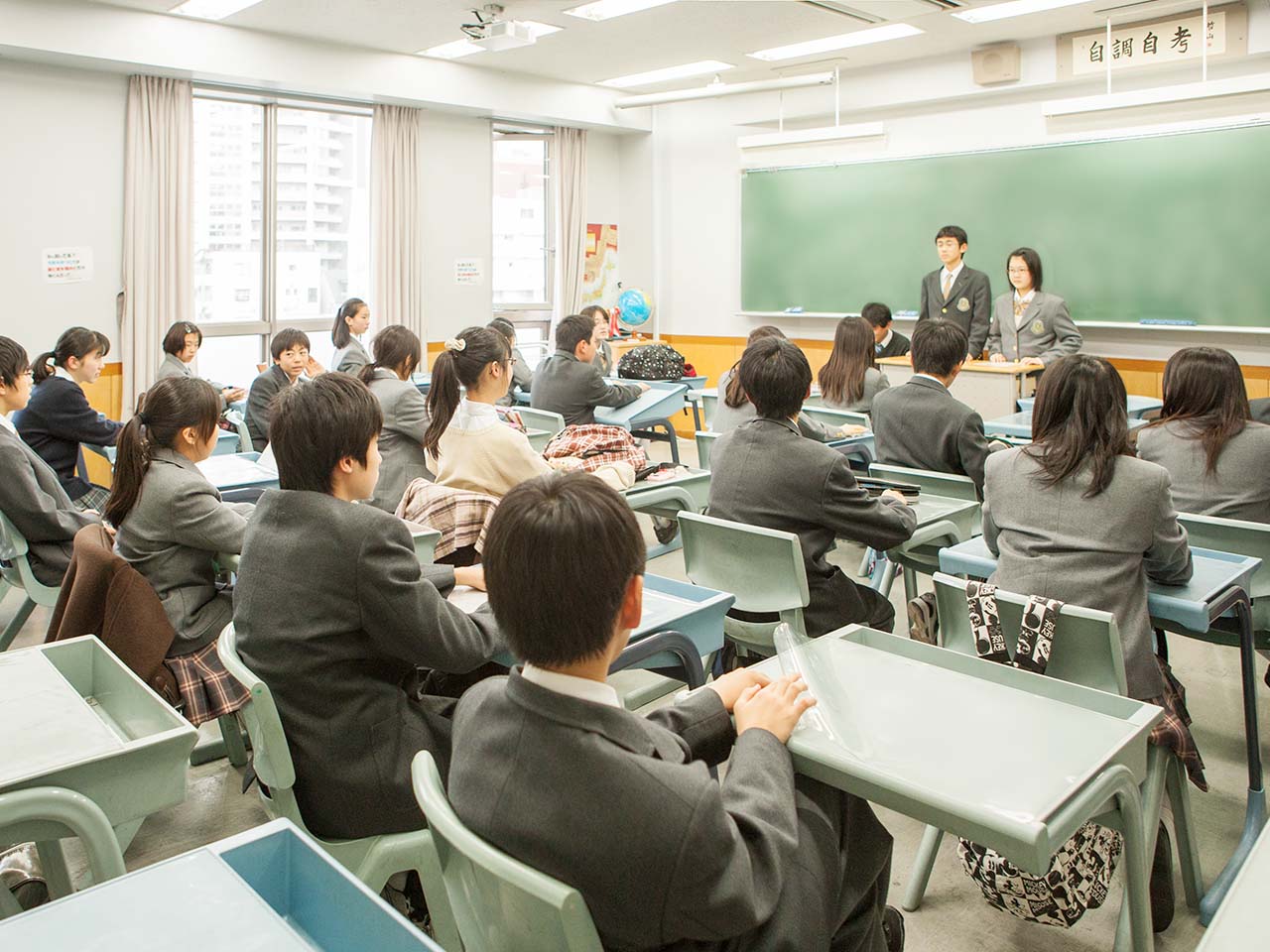
Calendar
School events comprise an exciting element of school life. All students are involved in organizing and creating these events.
April
・entrance ceremony
・school year opening ceremony
・first-year students’ welcome assembly
・first-year students’ orientation trip
May
・one-day field trips
・student council election
・mid-term exam week
June
・sports festival
・student council assembly
・intramural English speech contest
・kabuki theater trip
July
・final exam week
・opera theater trip
・term I closing ceremony
・summer courses
August
・student clubs’ summer camps
・summer courses
September
・term II opening ceremony
・culture festival
・hosting homestay students from Singapore
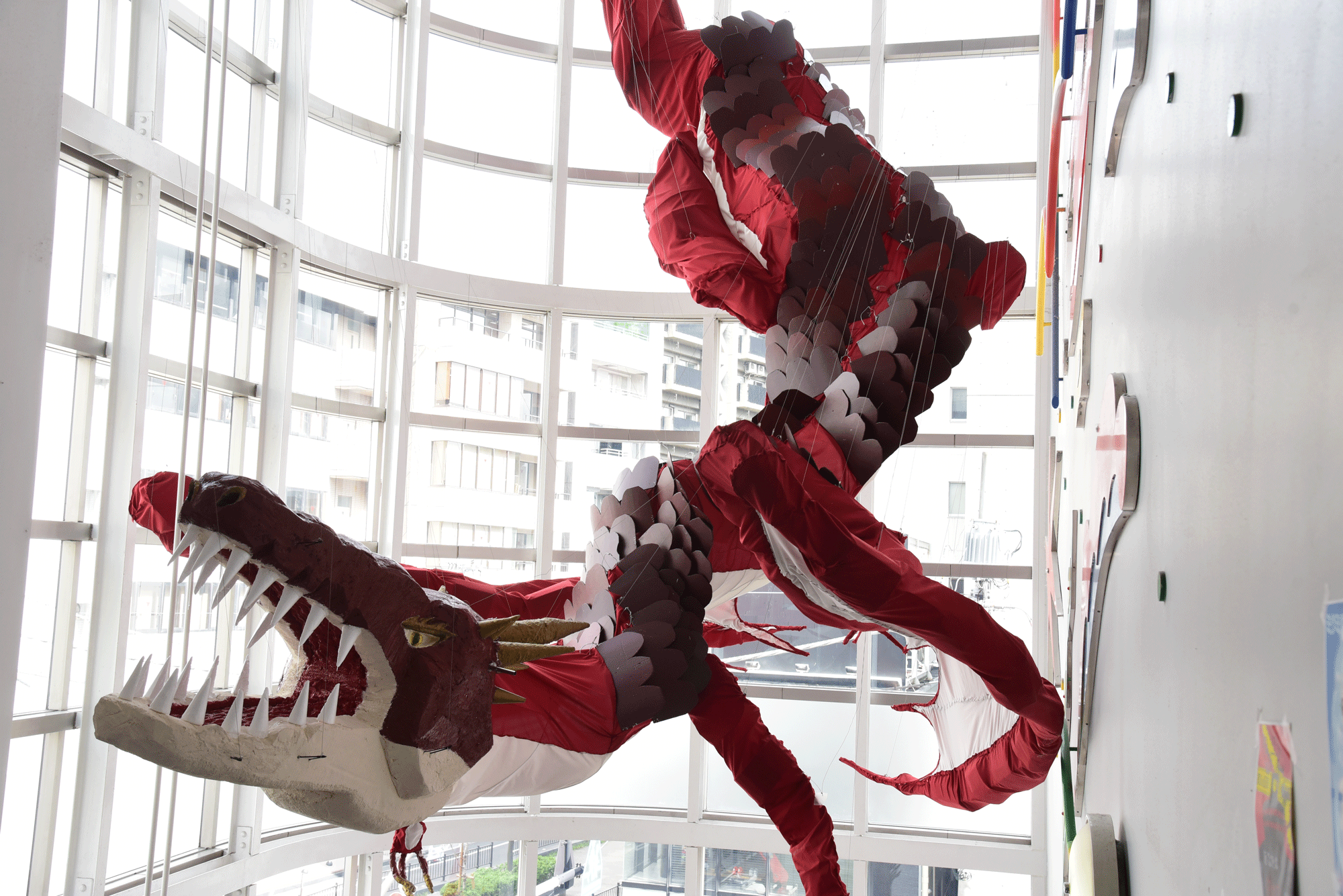
October
・study trips (Junior 1 one day in Kamakura, Junior 2 three days in Nagano, Junior 3 four days in Nara, Senior 1 three days in Hiroshima, Senior 2 six days in Kyushu or China)
・mid-term exam week
November
・intramural Japanese speech contest
・music festival
・intramural debate contest
・hosting homestay students from Australia
December
・string instruments concert
・final exam week
・term II closing ceremony
・ski camp
・winter courses
January
・opening ceremony
・hyakunin isshu traditional Japanese card game tournament
February
・senior thesis presentation
・intramural chorus competition
・mock trial
・school foundation day lecture
March
・graduation ceremony
・yearbook publication
・final exam week
・school year closing ceremony
・spring courses
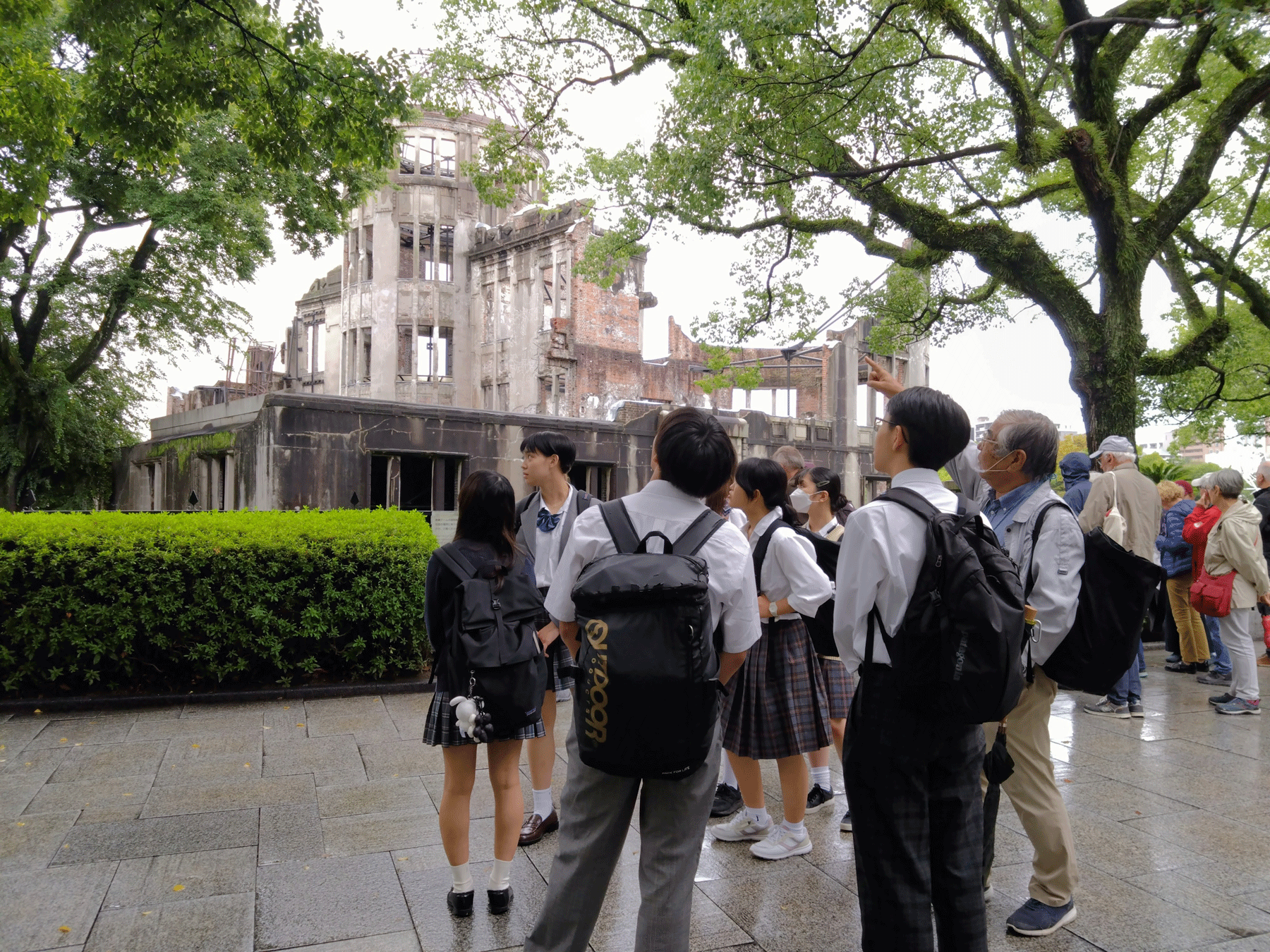
Extracurricular Activities
We offer a wide range of extracurricular activities, such as student clubs, second foreign language courses in Chinese, French, German, Spanish, Korean, and group lessons in string instruments.
Most of our students take part in one or more of student club activities. There are about 15 sports clubs and 25 culture clubs. We have a very active English debate club and Model United Nations club. These clubs have continued to do excellent work and have won national and international championships multiple times. Roughly a quarter of students take one of the second foreign language classes. In the string instrument lessons, violin, viola, cello, and contrabass are each taught by outside instructors. Students who do not have their own instruments can also take classes, as students can borrow the school’s instruments. Students perform at the school festival, school concerts, the entrance ceremony, and graduation ceremony. At the school festival, students taking these lessons and the brass band club form a joint orchestra and perform together.

We also encourage students to participate in international conferences and competitions for high school students. With the help of university professors, students prepare academic papers or practice solving STEM problems.
Inquiries
If you have questions, please contact us by e-mail.

